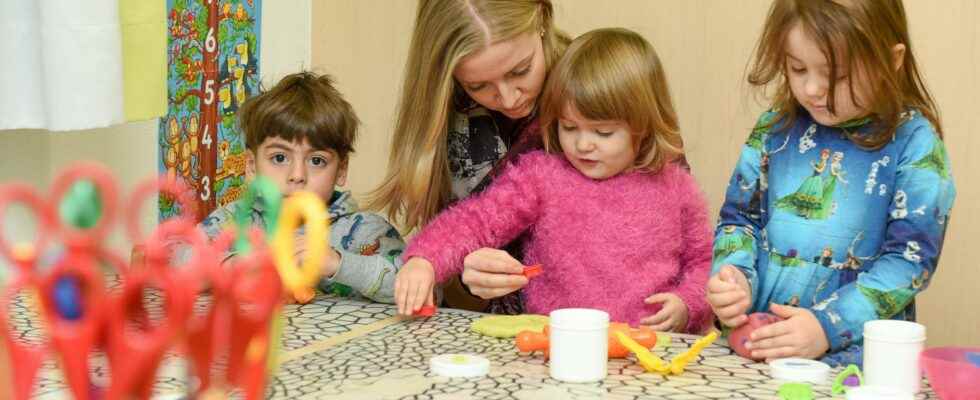On January 1st, numerous innovations come into force in Vorarlberg, many of which are related to the fight against inflation. Families and young people in particular should be given more support.
In the past few months, the state government has introduced a number of changes to the law. At the beginning of the year, many also become beating. The most important reform projects are without a doubt the new Child Education and Care Act (KBBG) and the new Party Support Act. The former is intended to promote the compatibility of family and career. The core element is the expansion of the care offer: “A care mandate for every community is anchored in the law,” states Governor Barbara Schöbi-Fink. Should mean: every three-year-old child whose main place of residence is in the community must be given an all-day place from the 2023/24 care year, every school-age child of primary school age from the 2024/25 care year an afternoon place and every 2-year-old child from the 2025/26 care year a day-care place of at least five hours a day – regardless of whether the parents work or not. In view of the current staff shortages, it will be interesting to see whether reality will keep up with the ambitious expansion plans. After all, as early as the new year there will be over 40 new support groups. The implementation of the new party funding law is far less challenging. This will come into full force at the turn of the year. In addition to stricter transparency rules and restrictions on election advertising, the law provides for extended control and sanction options. Citizens are also given completely new insights. For example, from January 1st, all studies, reports and surveys, including their costs, will be published on the state’s website. Support for families and young people The other innovations are intended to directly or indirectly help fight inflation. The anti-cost-of-living package passed by the state includes a significant increase in family allowances – the minimum allowance has been tripled from 51 to 150 euros, and the maximum allowance has been raised from 505.50 to 600 euros. From January, the children’s standard rates in social assistance will also be increased: “Per child there will be 29 euros more per month, as a benefit in kind these children will receive up to 5 euros support for lunch in the facilities,” said Social Minister Katharina Wiesflecker (Greens). Also significantly increased the funds for housing assistance – from 29 to 39 million euros. In this way, the state helps those who find themselves in an emergency or who have problems paying the rent or paying back the loan for the creation of housing or refurbishment on their own. The housing subsidy, which is estimated at almost 155 million euros, has been completely revised. The previously quite complex set of rules has been streamlined, instead of a basic subsidy rate per square meter there will be lump sum loans in the future. In order to make it easier for young people to acquire property, an equity replacement loan is also granted under certain conditions – a maximum of EUR 25,000 with a term of 20 years, interest-free and without collateral in the land register. So that the heating of the living space remains affordable, the heating cost subsidy was increased from EUR 270 to EUR 330 euros increased. Also on January 1, the new energy subsidy guideline comes into force, with which the switch to climate-friendly heating systems is to be accelerated. Several improvements relate to the care sector. The funding for 24-hour care has been increased by more than 16 percent. In addition, some things have been set in motion to make the nursing profession more attractive – the staff ratio has been improved, a training fee has been introduced, and wages will also increase.
source site-12
